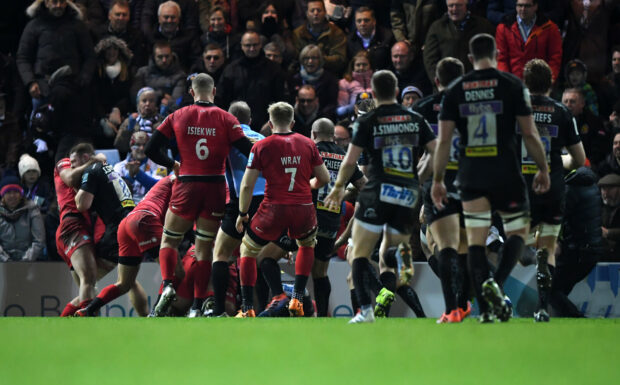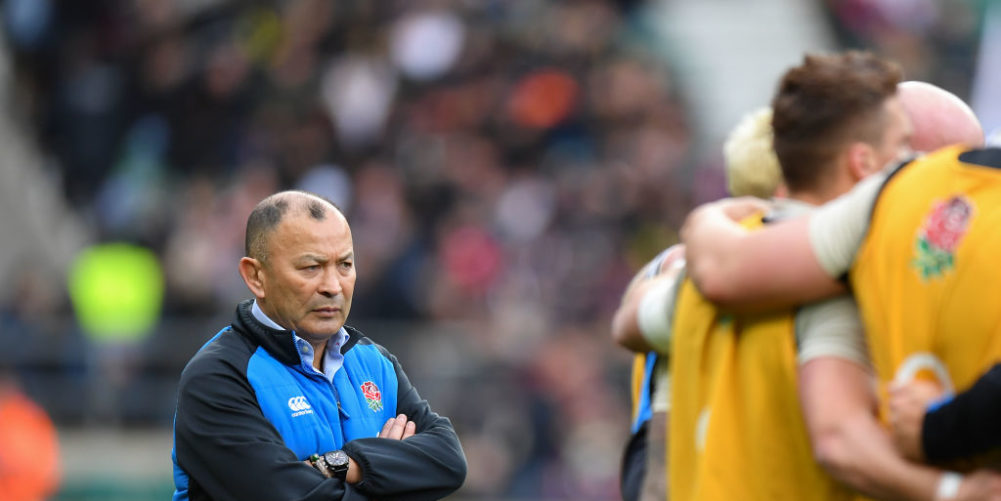As we start the New Year, it's always good to look back at last season's games to see if we can learn anything. England's performance in the Six Nations saw an improvement on the previous year's fifth place, but unfortunately not the Champiosnhip win, nor Grand Slam, which is normally seen as a prerequisite to challenge for the World Cup.
In 2019, a World Cup year brought both joy and tears as England surpassed expectation with a thumping victory over the All Blacks, only to be humbled by defeat to South Africa.
After that result both the RFU and head coach Eddie Jones have a tough decision to make about the future direction of the England coaching team. If they choose to continue their partnership there must be a long term strategic plan for the next coach, or potential coaches to be involved.
The RFU should not continue to allow Jones to keep importing expensive overseas coaches to help bolster his results in the hope of keeping his job until the next World Cup.
Meanwhile, the Premiership season is not even halfway through but is mired in controversy, with the salary cap breach by last season's champions Saracens – and their punishment of 35 league points deducted and fine of over £5 million – leaving them rooted to the bottom of the league at the moment.
Exeter are the club that has been the most vocal about the Saracens breach, and what they feel is an insufficient punishment given what they know of the actions of Sarries in creating that breach.
And so no surprise, the last game of the decade saw another mass brawl involving the two sets of players as Exeter tried and succeeded to put a nail in the coffin of Saracens' Premiership survival hopes. Not that there is much of a chance of Saracens not surviving in the Premiership – with 15 games remaining they have more than enough games left to play, and win, for them to escape the drop.
Rob Baxter's comments about other clubs suffering as a result of an aggressive recruitment policy, which offered players much more than they should to stay within the cap, had caused some coaches and clubs to lose their jobs or status as a result.
It is alleged that Saracens did this in the knowledge that they knew that what they were doing was wrong. There is hearsay evidence of players, including current internationals, bragging to teammates about the amount they were to be paid when and if they moved to Saracens, only to change their story a few weeks later saying they had moved for a lower wage.
Of course none of this could ever be used as evidence of any deliberate breach, as what is said in the changing rooms of a club at training is almost as sacrosanct as what goes on tour.
However, Saracens will be reeling at the news that long-standing chairman Nigel Wray has stepped down after creating one of the best club teams of the professional era.
Wray can and should be proud of what he has achieved since taking charge of a club that were always more accustomed to being ‘the bridesmaids never the bride' to make them the champions of the European club game.
Since taking charge, Nigel has always had a view that the club's employees, players and coaches were part of the Saracens family – even when they retired or if they left the club – and this has engendered a greatly deserved loyalty to the club and its chairman.

Unfortunately, by trying to ensure the players' success in life after rugby by investing in a number of player led projects, it has resulted in the breach of the spirit of the salary cap, if not the cap itself, and resulted in the subsequent penalty.
Fortunately for the players, now that Nigel has stepped down and is no longer officially associated with the club, he can continue investing in their various projects with no link to the Saracens wage cap and the club can avoid any further punishment.
For the rest of the game below the top elite professional game, it has been the usual grind to survive in difficult financial times within what is effectively a semi-professional league structure.
Whether in the Championship or the National Leagues below, the expense of competing in the respective league, with travel and player costs and minimal help from the union, is encouraging more and more clubs to think of following the example of the group of northern clubs who broke away from the official league structure to form a more sustainable competition outside the RFU leagues.
Admittedly there are still many clubs that don't pay their players, but there are also many that do even, if just relatively small sums.
As important as leagues were in making the game more competitive, there can be no doubt they have created some problems. Not least as clubs progress, it almost inevitably means they have to travel further for games and lose many of the traditional local fixtures.
The RFU funding for travel has been cut, and efforts made to restructure leagues to reduce travel distance and the need for RFU funds with some success.
However, what has been described in this paper over the last few weeks as the grind of playing in the national leagues and loss of player numbers, perhaps highlights one of the biggest obstacles to growth that the game faces in 2020.
JEFF PROBYN


























